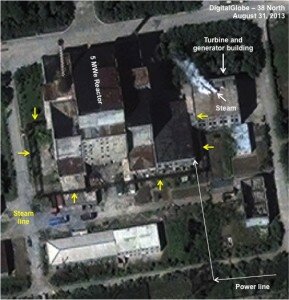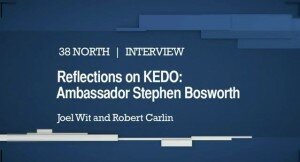Published on November 12, 2014
The US-Korea Institute at SAIS is seeking program and research interns for immediate hire and for the upcoming spring semester. Multiple positions are open, duties will vary. Current areas of research include: North Korea political, economic, and social development, North Korean WMD issues, US-ROK nuclear cooperation, US-ROK cooperation in Southeast Asia, US-ROK cooperation nuclear security, US foreign policy to both Koreas, energy security cooperation in Northeast Asia, ROK renewable energy policies, and more. Candidates with a background in security and Asia issues preferred for immediate open positions.
Interns generally are asked to do a variety of tasks including research assistance, event attendance and reporting, logistical support for events and projects, and other things as necessary. They may work with USKI staff and/or Visiting Scholars on various projects.
Successful candidates should have an interest in Korea and/or East Asia policy and be at least a sophomore in college or higher; graduate students and post-grads are encouraged to apply. Foreign language skills are a plus, but not necessary. Strong writing and editing skillls are preferred. Must be able to multitask, prioritize, meet deadlines, and work well both independently and in small groups.
USKI internships are unpaid and interns are expected to work at least 4 days a week.
To apply, please email cover letter, resume and short writing sample to Jenny Town, Assistant Director at jtown2@jhu.edu. Only those chosen for interview will be contacted. No phone calls please.
Published on October 14, 2014
On the 20th Anniversary of the signing of the 1994 US-DPRK Agreed Framework, the US-Korea Institute at SAIS invites you to join us in a special program to remember the 1994 North Korean nuclear crisis, which brought about this historic agreement, and discussion of policy options for the US, South Korea and Japan for dealing with North Korea’s nuclear and WMD programs now and in the future.
Featuring:
- Stephen Bosworth, Chairman, US-Korea Institute at SAIS, former KEDO Executive Director, US Ambassador to Republic of Korea
- Robert Gallucci, former Ambassador At-Large and Assistant Secretary of State for Political-Military Affairs
- Sung-Joo Han,Chairman, International Policy Studies Institute of Korea (IPSIKOR), former Minister of Foreign Affairs, Republic of Korea
- James Laney, former US Ambassador to Republic of Korea
- Yukio Takeuchi, former Justice, Supreme Court of Japan, former Vice Foreign Minister, Japan
Discussants:
- Thomas Hubbard, former Deputy Assistant Secretary of State and US Ambassador to the Republic of Korea
- Dan Poneman, former Senior Director for Non-Proliferation and Export Controls, National Security Council and Deputy Secretary of Energy
- Gary Samore, Executive Director, Belfer Center for Science and International Affairs, White House Coordinator for Arms Control and Weapons of Mass Destruction
- General Gary E. Luck, former Commander-in-Chief, United Nations Command (Korea)/Combined Forces Command/US Forces Korea
And moderated by Joel S. Wit, Senior Fellow, US-Korea Institute at SAIS, former Agreed Framework Coordinator
This program is free and open to the public and press. For more information to RSVP, visit here.
Published on April 10, 2014
The US-Korea Institute at SAIS is currently seeking 1-2 Communications interns. Tasks will include such activities as web content management/updates (multiple websites), social media management, media tracking, writing media advisories and event briefs, email newsletter management, event material preparation, and more.
A successful candidate should have superior writing and editing skills (in English), some copywriting experience a plus, with an eye for design, and should have some experience in the following programs: Adobe Photoshop, InDesign and Illustrator; WordPress (or other web content management systems); social media platforms including Facebook, Twitter, and LinkedIn (forums).
USKI internships are unpaid and interns are expected to work at least 4 days a week.
To apply, please email cover letter, resume and short writing sample to Jenny Town, Assistant Director at jtown2@jhu.edu. Only those chosen for interview will be contacted. No phone calls please.
Published on April 10, 2014
The US-Korea Institute at SAIS is currently seeking program and research interns. Multiple positions are open and duties will vary. Some current areas of research include: North Korea political, economic, and social development, North Korean WMD issues, US-ROK nuclear cooperation, US-ROK cooperation in Southeast Asia, US-ROK cooperation nuclear security, US foreign policy to both Koreas, energy security cooperation in Northeast Asia, ROK renewable energy policies, and more.
Interns generally are asked to do a variety of tasks including research assistance, event attendance and reporting, logistical support for events and projects, and other things as necessary. They may work with USKI staff and/or Visiting Scholars on various projects.
Successful candidates should have an interest in Korea and/or East Asia policy and be at least a sophomore in college or higher; graduate students and post-grads are encouraged to apply. Foreign language skills are a plus, but not necessary. Strong writing and editing skillls are preferred. Must be able to multitask, prioitize, meet deadlines, and work well both independently and in small groups.
USKI internships are unpaid and interns are expected to work at least 4 days a week.
To apply, please email cover letter, resume and short writing sample to Jenny Town, Assistant Director at jtown2@jhu.edu. Only those chosen for interview will be contacted. No phone calls please.
Published on September 12, 2013
 The US-Korea Institute at SAIS’s web-journal on North Korea, 38 North, has reported seeing steam emitting from North Korea’s 5 MWe gas-graphite reactor. This reactor, used to produce plutonium for nuclear weapons, was shut down in 1994 as part of the US-North Korea Agreed Framework. In 2008, the cooling tower for the reactor was destroyed as part of the 2007 Six Party Agreement. However, after high tensions on the Korean peninsula earlier this year, North Korea announced its intention to restart this reactor.
The US-Korea Institute at SAIS’s web-journal on North Korea, 38 North, has reported seeing steam emitting from North Korea’s 5 MWe gas-graphite reactor. This reactor, used to produce plutonium for nuclear weapons, was shut down in 1994 as part of the US-North Korea Agreed Framework. In 2008, the cooling tower for the reactor was destroyed as part of the 2007 Six Party Agreement. However, after high tensions on the Korean peninsula earlier this year, North Korea announced its intention to restart this reactor.
38 North analysts have been tracking construction at this site through commercial satellite imagery since the North’s announcement. In DigitalGlobe imagery from August 31, 2013, steam was seen coming from the electrical power generating building. See the full analysis at USKI’s 38 North.
Published on July 19, 2012
USKI’s 38 North and Stanford University’s Center for International Security and Cooperation (CISAC) have launched new resources on the history of KEDO to help increase public understanding of what this project was and what it accomplished.
When the South Korean fast ferry Hankyoreh sailed out of North Korean waters into the cold wind and waves of the East Sea on the morning of 8 January 2006, it carried a sad and somber group of South Korean workers, ROK officials, and personnel from the Korean Peninsula Energy Development Organization (KEDO). These were all that remained of a decade long multinational effort transforming what in 1994 had been only a paper notion into a modern construction complex of steel and concrete. KEDO’s profile on the North Korean landscape was unmistakable, its impact on Pyongyang profound. Yet, real knowledge and understanding about the organization in public and official circles in South Korea, Japan, and the United States was terribly thin at the beginning, and remains so to this day. ~ A History of KEDO 1994-2006
 In conjunction with the release of CISAC’s new book, A History of KEDO 1994-2006–an oral history project meant to preserve what remains of the living memory about KEDO, of the thinking that went into setting up the organization, the efforts to coordinate plans and translate them to realities on the ground in North Korea, and the struggle to maintain a sense of sanity while KEDO was pushed and pummeled into disintegration–USKI’s 38 North launches a new video: “Reflections on KEDO.” In this video, Joel Wit (38 North founder and Visiting Scholar at the US-Korea Institute at SAIS), hosts a conversation with Ambassador Stephen Bosworth (former US Special Representative for North Korea Policy and current Dean of The Fletcher School at Tufts University) and Robert Carlin (CISAC Visiting Scholar), about their experiences with KEDO. All three were involved with KEDO at different times in its ten year history and provide insights into what it was like on the ground building this multilateral organization. They discuss some of the major challenges in dealing with the North Koreans, as well as the cultural learning curve faced by KEDO’s multicultural staff. From the perspective of direct experience, they examine both KEDO’s accomplishments and the opportunities missed by the organization’s abrupt termination. In the final segment, Ambassador Bosworth also reflects on the Obama administration’s North Korea policy and provides his views on how to improve relations with the North in the future.
In conjunction with the release of CISAC’s new book, A History of KEDO 1994-2006–an oral history project meant to preserve what remains of the living memory about KEDO, of the thinking that went into setting up the organization, the efforts to coordinate plans and translate them to realities on the ground in North Korea, and the struggle to maintain a sense of sanity while KEDO was pushed and pummeled into disintegration–USKI’s 38 North launches a new video: “Reflections on KEDO.” In this video, Joel Wit (38 North founder and Visiting Scholar at the US-Korea Institute at SAIS), hosts a conversation with Ambassador Stephen Bosworth (former US Special Representative for North Korea Policy and current Dean of The Fletcher School at Tufts University) and Robert Carlin (CISAC Visiting Scholar), about their experiences with KEDO. All three were involved with KEDO at different times in its ten year history and provide insights into what it was like on the ground building this multilateral organization. They discuss some of the major challenges in dealing with the North Koreans, as well as the cultural learning curve faced by KEDO’s multicultural staff. From the perspective of direct experience, they examine both KEDO’s accomplishments and the opportunities missed by the organization’s abrupt termination. In the final segment, Ambassador Bosworth also reflects on the Obama administration’s North Korea policy and provides his views on how to improve relations with the North in the future.
My personal conclusion was they [North Koreans] were very serious about what they were doing—the enterprise that we were involved in. This was not something just being done for show. For them, it was not just KEDO and the Agreed Framework and light water reactors, but it was clear for many of them this was important because it was setting a series of precedents for how North Korea could begin to engage with rest of the world in a more direct and active fashion. ~ Ambassador Stephen Bosworth, “Reflections on KEDO,” a 38 North interview
Find the 38 North video here.

 The US-Korea Institute at SAIS’s web-journal on North Korea, 38 North, has reported seeing steam emitting from North Korea’s 5 MWe gas-graphite reactor. This reactor, used to produce plutonium for nuclear weapons, was shut down in 1994 as part of the US-North Korea Agreed Framework. In 2008, the cooling tower for the reactor was destroyed as part of the 2007 Six Party Agreement. However, after high tensions on the Korean peninsula earlier this year, North Korea announced its intention to restart this reactor.
The US-Korea Institute at SAIS’s web-journal on North Korea, 38 North, has reported seeing steam emitting from North Korea’s 5 MWe gas-graphite reactor. This reactor, used to produce plutonium for nuclear weapons, was shut down in 1994 as part of the US-North Korea Agreed Framework. In 2008, the cooling tower for the reactor was destroyed as part of the 2007 Six Party Agreement. However, after high tensions on the Korean peninsula earlier this year, North Korea announced its intention to restart this reactor.
